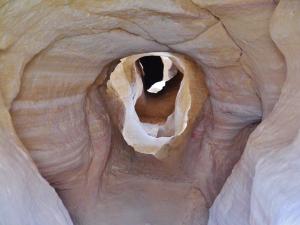This is an archive of prayers and other works relevant to erev Pesaḥ (the day prior to Passover).
Click here to contribute a work that you have prepared for erev Pesaḥ.
⤷ You are here:
🖖︎ Prayers & Praxes —⟶ 🌔︎ Prayers for the Moon, Month, and Festival Calendar —⟶ Pilgrimage Festivals (Ḥagim/Regalim) —⟶ Pesaḥ —⟶ Erev Pesaḥ 🡄 (Previous category) :: 📁 Shabbat haGadol 📁 Leil Pesaḥ :: (Next Category) 🡆 Erev PesaḥThis is an archive of prayers and other works relevant to erev Pesaḥ (the day prior to Passover). Click here to contribute a work that you have prepared for erev Pesaḥ. Filter resources by Collaborator Name Applied Jewish Spirituality | Chaya Kaplan-Lester | Isaac Gantwerk Mayer (transcription & naqdanut) | Isaac Gantwerk Mayer (translation) | Neohasid·org | David Seidenberg | the Shalom Center | Daniel Raphael Silverstein | Arthur Waskow Filter resources by Tag Aramaic | בדיקת חמץ bediḳat ḥamets | ביעור חמץ bi'ur ḥamets | candle lighting | eco-conscious | ecoḥasid | Elephantine | English poetry | English vernacular prayer | entering | fire | guided meditations | haggadah supplements | חמץ ḥamets | כוונות kavvanot | kindling | liberation from mitsrayim | Light | military | North America | Nusaḥ Yeb | potential | Prayers as poems | reconstructed text | scripts | welcoming | יציאת מצרים Yetsiat Mitsrayim | 5th century C.E. | 20th century C.E. | 21st century C.E. | 34th century A.M. | 58th century A.M. Filter resources by Category Earth, our Collective Home & Life-Support System | Ecotastrophes | Erev Shabbat | Magid | 7th Day of Pesaḥ | Roleplaying | Rosh haShanah (l’Maaseh Bereshit) | Shavuot | Sukkot | Yom Kippur Filter resources by Language Filter resources by Date Range Resources filtered by TAG: “reconstructed text” (clear filter) Sorted Chronologically (old to new). Sort most recent first? This letter, written in Imperial Aramaic in 419 BCE, is among the vast number of papyrus letters found in Elephantine, also known as Yeb. The Jewish (or more accurately, Judean) community of Yeb is a fascinating bit of history — a group of Judean mercenaries who settled in Egypt and built their own smaller temple! Although their origin was clearly Judean, and they referred to themselves as the ḥeila yehudaya = Judean garrison, their form of worship featured no Deuteronomic centralization, no discussion of the patriarchs, and questionable monotheism! Although the primary deity was YHW (note the difference in spelling), multiple other deities or hypostatized aspects of divinity were worshipped, and verbs for the word “God” are conjugated in the plural rather than the singular. This text is one of a series of letters written between the brothers Yedaniah and Ḥananiah. In this case, it is giving instructions for keeping the holiday of Pesaḥ. These instructions are interesting in their own right — the prohibition on beer could alternatively be read as a prohibition on any alcoholic drink, which would align with Karaite practice rather than rabbinic. But what’s even more interesting is what isn’t mentioned — the instructions given mention nothing whatsoever about the exodus from Egypt, or even God! The diktat to observe the holiday is accredited not to God or Moses, but to Darius, king of the Achaemenid Empire! This passage is a fascinating taste of a part of Judaism that we know very little about. Vocalization according to Tiberian norms and translation into English by the translator. . . . Categories: Tags: Contributor(s):
Stable Link:
https://opensiddur.org/index.php?cat=2496
Associated Image: 
"Copper mines, Timna Valley, Negev Desert, Israel" (credit: Zairon, license CC BY-SA) (This image is set to automatically show as the "featured image" in shared links on social media.)
Terms of Use:
Be a mentsch (a conscientious, considerate person) and adhere to the following guidelines:
Additional Notes:
Support this work:
The Open Siddur Project is a volunteer-driven, non-profit, non-commercial, non-denominational, non-prescriptive, gratis & libre Open Access archive of contemplative praxes, liturgical readings, and Jewish prayer literature (historic and contemporary, familiar and obscure) composed in every era, region, and language Jews have ever prayed. Our goal is to provide a platform for sharing open-source resources, tools, and content for individuals and communities crafting their own prayerbook (siddur). Through this we hope to empower personal autonomy, preserve customs, and foster creativity in religious culture.
ויהי נעם אדני אלהינו עלינו ומעשה ידינו כוננה עלינו ומעשה ידינו כוננהו "May the pleasantness of אדֹני our elo’ah be upon us; may our handiwork be established for us — our handiwork, may it be established." –Psalms 90:17
| ||
Sign up for a summary of new resources shared by contributors each week
  |
